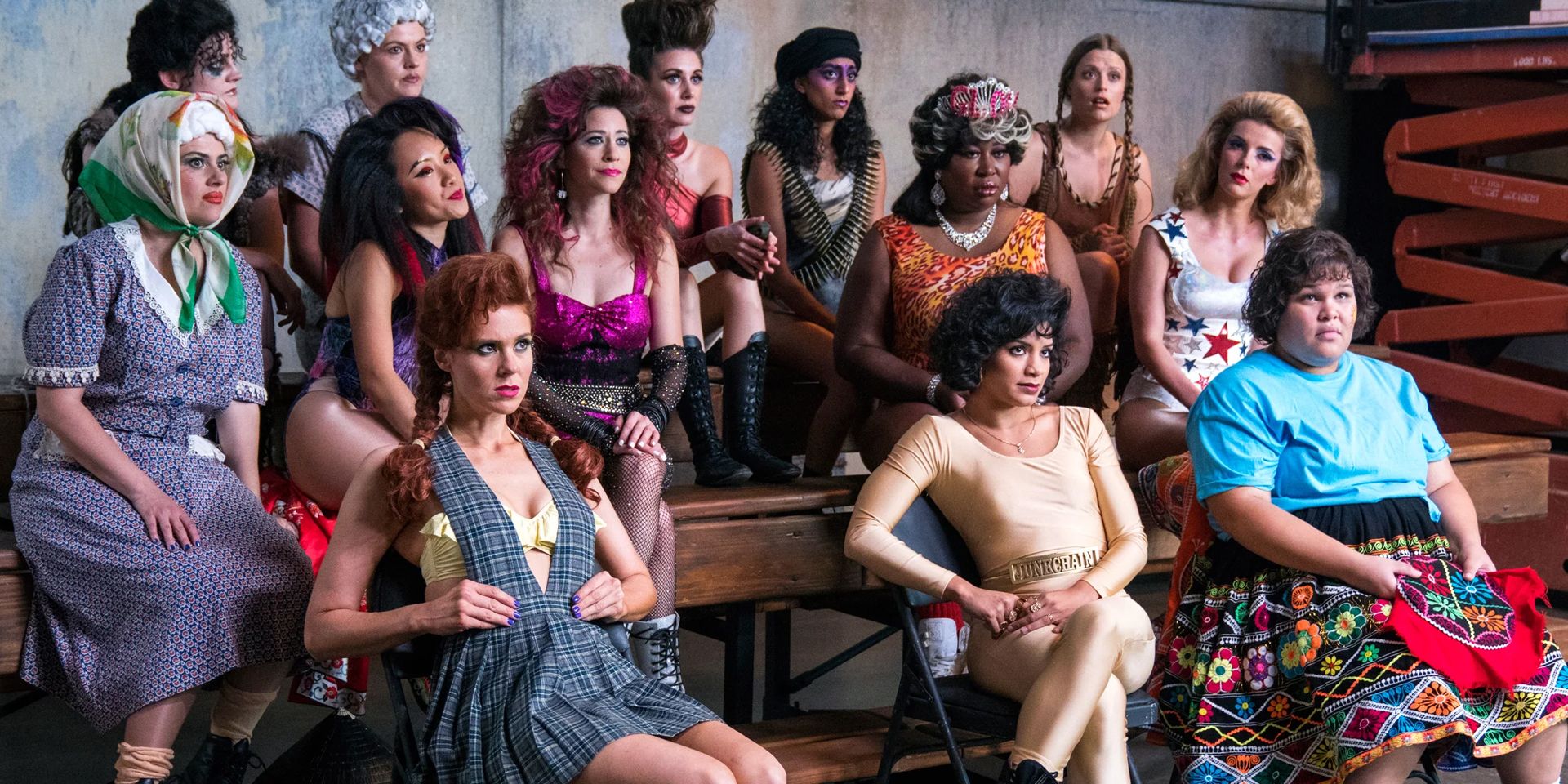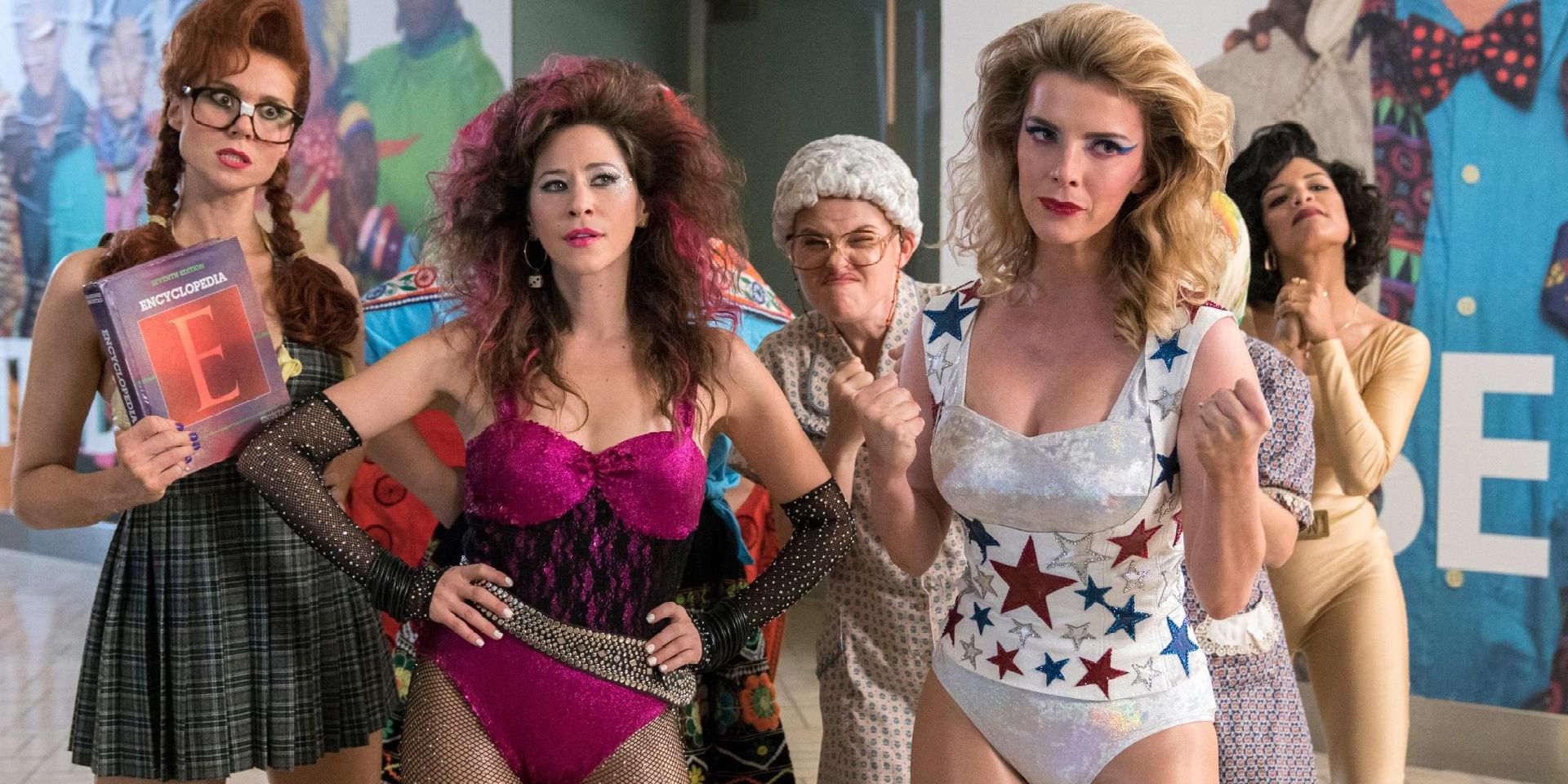Netflix's GLOW was a wonderful anomaly of a television show, from the diversity of the cast, to the breadth of stories told, to the sheer oddity of some of its feature episodes. It looked like a project that had been lovingly and carefully invested in thanks to its plucky, inventive spirit. It was renewed for a fourth and final season in September 2019, shortly after the third season's release, but production on the fourth season halted in March 2020, due to COVID-19.
The renewal was officially reversed in October 2020, also largely due to COVID-19 and related concerns. It isn't the only show to be canceled because of COVID, but it was more established and well-received than the other shows in question. Furthermore, it will be the most sorely missed.
One of the strengths of GLOW was its inclusiveness, both on and off-screen. If one looks at a list of the cast members, 81 percent of the main cast and 66 percent of the cast appearing in six or more episodes identify as female. Compared to Women in Hollywood's television industry average of 43 percent for speaking roles, this is remarkable. Its female cast also ranged in age from mid-20s to early 60s, and it featured Black, Jewish, Asian and Latinx actors. Along with great on screen representation, GLOW was created by women, and many of its directors and writers were women from a variety of backgrounds.
The female cast also had a range of body types rarely seen in Hollywood productions. While some of the actresses fit the expected thin build that often dominates screens, the show featured many figures without shaming anyone for their shape.
The production team also didn't require any of its actresses to lose weight or change who they were physically beyond training to be able to do the stunts, something multiple actresses described as empowering and inspiring. Furthermore, as actress Britney Young said in a Glamour article, they did not airbrush the actors' promotional photos. Everyone was allowed to be physically who they are, something that's unfortunately too rare.
The show also made a point of telling a wide variety of important stories. Typical industry plots about finding one's calling and learning to be comfortable in show business were interwoven with more serious storylines that tackled issues like race, mental health and sexuality. Dealing with sexual harassment, gender and racial inequality and queer issues were also presented in a compassionate way on the show.
The show's third season finale could have been a series finale if it had to be. After a Christmas special and gift-giving session, the GLOW team was seen going their separate ways for the holidays. Carmen (Young) headed off to work with her brother, not telling the others she planned to quit GLOW; Debbie (Betty Gilpin) bought a TV station and was putting together an all-new GLOW program, hopefully with Ruth (Alison Brie) as director; and Bash (Chris Lowell) and Rhonda (Kate Nash) were trying to expand his media empire despite their marriage being largely for show.
These elements being set up could just be interpreted as "what they do next" epilogue-type details, but the fact that a fourth season had been planned implies a further and more satisfying resolution to this story, especially for the many characters whose fates were left uncertain. It's a shame that Netflix didn't see fit to share a proper end with fans.


